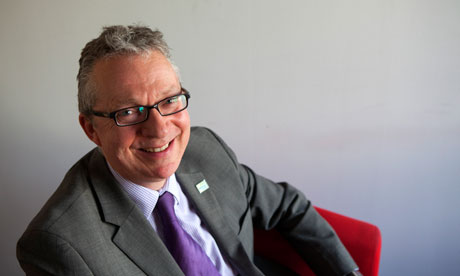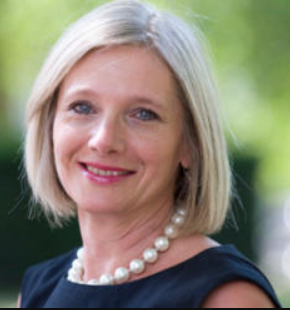There is a brilliant quote by Abraham Maslow (who created the much vaunted ‘hierarchy of need’):
“I suppose it is tempting, if the only tool you have is a hammer, to treat everything as if it were a nail.”
It’s a brilliant analogy of how we can limit our own thinking without even realising it. This quote kept coming into my head as I was thinking about the recent Parker Review.
On 5 February 2020, Sir John Parker released his review into diversity on corporate boards. It found that 37% of FTSE 100 companies “do not have any ethnic minority representation on their boards”. FTSE 250 companies are worse, with 69% having no ethnic diversity on their boards. The report follows a 2017 review and reveals woefully slow progress since then.
The voluntary sector has little to celebrate on board diversity. Around 8% of trustees are from ethnically diverse backgrounds, a third are women and the average age is between 55 and 64. Given that the ‘tap on the shoulder’ approach is still a big part of how charities find new trustees, these figures are not surprising.
The Parker Review talks about ‘representation’ from racially diverse groups on boards. The language is interesting. It suggests an underlying assumption that a key reason for achieving diversity is to do with fairness, and ensuring boards look like the world we live in. Personally, I believe these are good reasons to address the lack of diversity on boards and in our executive teams, but are they strong enough reasons to ignite change?
Whilst we continue to think of diversity as a fairness issue, it remains a ‘nice to have’, rather than an essential pre-requisite for organisational success. Things like having financial skills are seen as more important, and an odd ‘binary’ way of thinking kicks in that assumes there is an ‘either/or’. Either we have greater diversity, or we recruit to other skills. As if an Asian woman can’t also be the person with the financial skills you are looking for.
To be fair, Parker does say: “To remain competitive in the global market, UK businesses must focus further on…increasing alignment of the board with its customer base at home and overseas.” The problem is that many of us in the voluntary sector struggle to articulate specifically how diversity can make our own organisations more successful, achieve our strategy goals and address the particular challenges our own organisations face. Our thinking tends to be general, fuzzy and well, flabby.
Until we can articulate precisely, specifically the benefits of diversity to our own boards and our own organisations, diversity will continue to be a ‘nice to have’. We need to make diversity and inclusion an issue of self-interest. Something we need, crave, ruthlessly hunt down so we can raise the funds we need to raise, change the local and national government policies that would make lives better for those we serve, provide the services that make the life changing difference that we want to make.
In corporate terms, success means making more money or increasing shareholder value. For the voluntary sector, success is about addressing some of the most profound inequalities our planet faces. How much more important is it, therefore, that we get diversity and inclusion right so that we can make the biggest difference we possibly can?
Until we see the issues of diversity and inclusion as ones of self-interest, we will never truly address their lack. On our boards or anywhere else. And the joy of it is, for our sector, self-interest and doing the right thing are so aligned they are pretty much the same thing.
So ditch the hammer. There’s a whole toolbox out there with different ways of thinking and doing things around diversity and inclusion. Open it up and see what you find.
Srabani Sen is CEO and founder of Full Colour
Latest News
-
Interim manager drafted in to run heritage charity embroiled in a 'serious dispute'
-
Probe launches into late filing anti-poverty charity
-
Dan Francis: What I've learnt in the first 100 days as CEO
-
Tributes paid to 'tenacious campaigner' who co-founded Terrence Higgins Trust
-
Man who set up fake animal charity jailed for five years
-
X-odus sparks video content boom among charities, report finds
Charity Times video Q&A: In conversation with Hilda Hayo, CEO of Dementia UK
Charity Times editor, Lauren Weymouth, is joined by Dementia UK CEO, Hilda Hayo to discuss why the charity receives such high workplace satisfaction results, what a positive working culture looks like and the importance of lived experience among staff. The pair talk about challenges facing the charity, the impact felt by the pandemic and how it's striving to overcome obstacles and continue to be a highly impactful organisation for anybody affected by dementia.
Charity Times Awards 2023
Mitigating risk and reducing claims

The cost-of-living crisis is impacting charities in a number of ways, including the risks they take. Endsleigh Insurance’s* senior risk management consultant Scott Crichton joins Charity Times to discuss the ramifications of prioritising certain types of risk over others, the financial implications risk can have if not managed properly, and tips for charities to help manage those risks.
* Coming soon… Howden, the new name for Endsleigh.
* Coming soon… Howden, the new name for Endsleigh.
Better Society

© 2021 Perspective Publishing Privacy & Cookies













Recent Stories